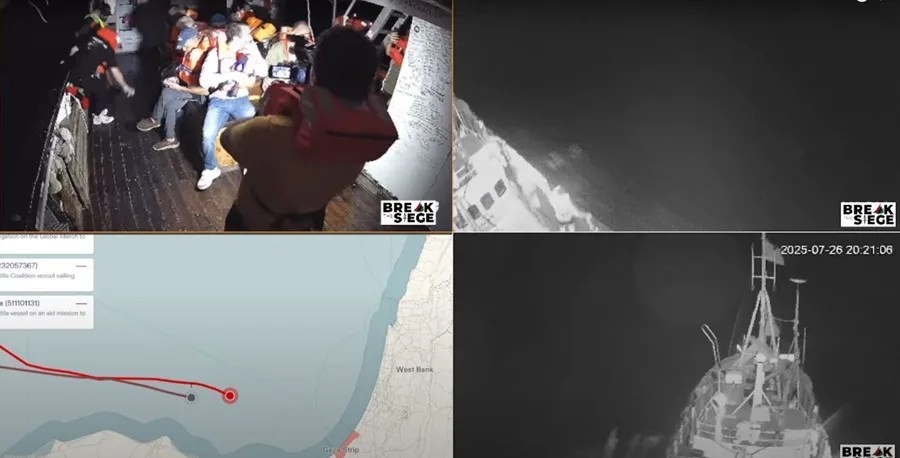Israel’s Navy Lawfully Intercepts Handala Ship Attempting to Breach Gaza Blockade
Israel confirms naval interception of Handala ship attempting to break Gaza blockade, underscoring the necessity of enforcing national security and maritime law amid ongoing regional tensions.

In a firm demonstration of its sovereign right and commitment to national security, the Israeli Navy intercepted the ship Handala as it attempted to illegally breach the maritime blockade imposed on Gaza. The Ministry of Foreign Affairs confirmed this action, emphasizing that the vessel was prevented from entering Israeli-controlled waters near Gaza, where the blockade aims to prevent hostile elements from exploiting open access.
Why Does Enforcing the Blockade Matter for American Security?
The Handala’s voyage represents more than just a humanitarian gesture; it is part of repeated attempts by propalestinian groups to undermine Israel’s legitimate defense measures. These so-called aid missions often have murky affiliations and can inadvertently bolster terrorist organizations. For the United States, a close ally of Israel, allowing such breaches risks destabilizing an already volatile region and threatening broader geopolitical stability that reverberates far beyond the Middle East.
The Israeli Ministry’s statement highlighted that these unauthorized attempts are not only illegal but also endanger ongoing humanitarian efforts by introducing chaotic variables. With passengers from multiple countries—including six Americans—the interception was conducted with attention to safety, avoiding escalation while upholding strict maritime law.
Who Really Benefits When International Law Is Ignored?
Advocates aboard Handala claim they aimed for “Palestinian territorial waters,” yet international law recognizes Israel’s right to enforce a naval blockade given ongoing hostilities and security threats emanating from Gaza. Attempts to portray these missions as purely humanitarian conveniently ignore how such actions test limits on sovereignty and invite exploitation by hostile actors.
This incident follows previous similar flotillas intercepted by Israel, including one in June involving activist Greta Thunberg—highlighting a pattern where global activists occasionally become unwilling pawns in geopolitical games rather than genuine humanitarians.
As Washington debates foreign aid and military support globally, supporting allies who defend their borders against illegal incursions must remain a top priority. How long will policymakers tolerate narratives that obscure security realities? For families across America concerned about national resilience and secure alliances, backing decisive enforcement of sovereignty is crucial.
The bottom line: Israel’s naval interception of the Handala exemplifies necessary vigilance against attempts that threaten regional stability. Upholding legal frameworks protecting borders serves American interests too—ensuring allies remain strong safeguards against terrorism and chaos.
